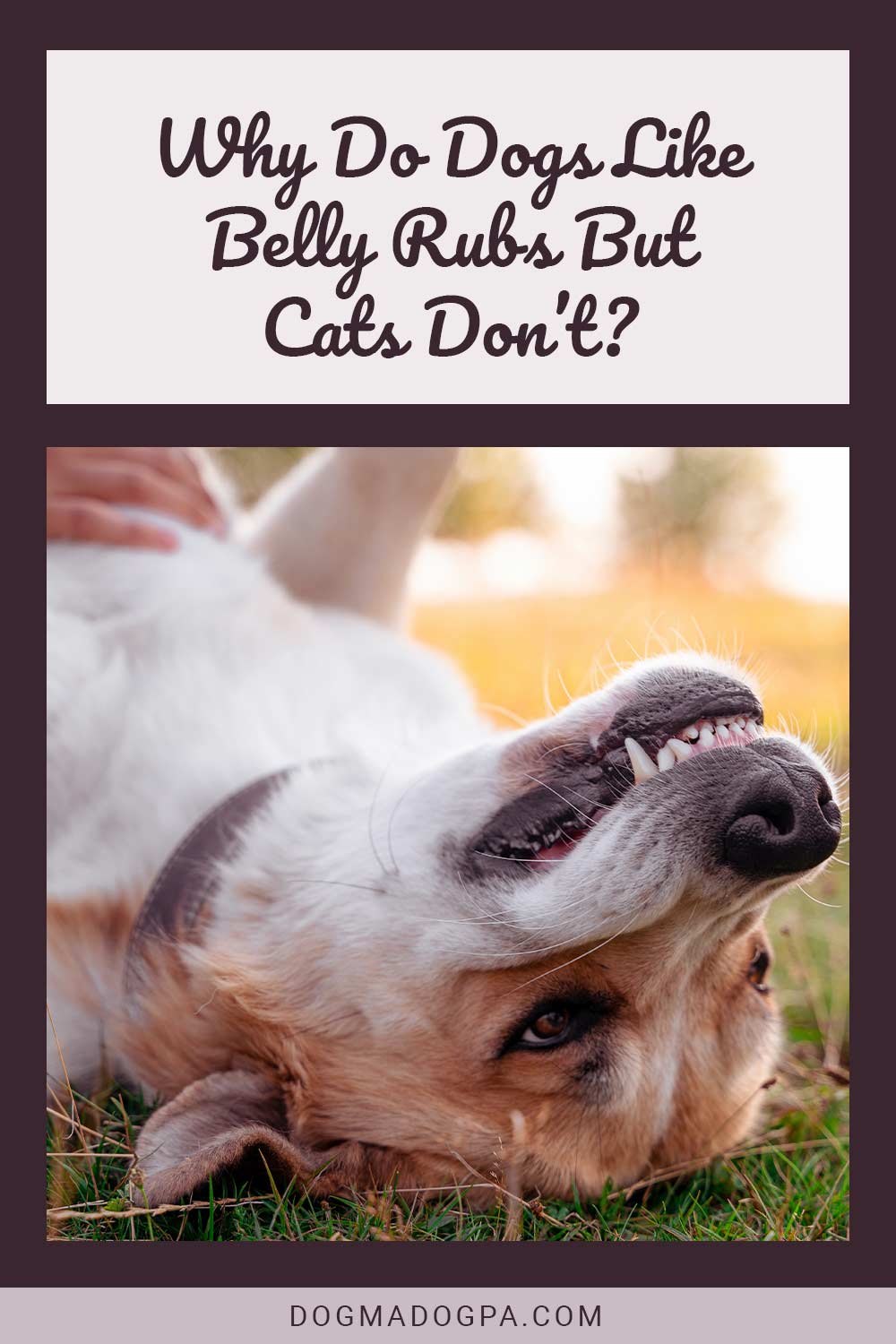Most dogs love their belly rubs. When they ask for one, it means that they trust you. However, have you noticed that cats don’t like belly rubs at all?
Cats don’t enjoy it as much as dogs because they tend to be more sensitive in the belly area.
Want to learn more about this phenomenon? Read on to see why dogs love it and how often you should rub their bellies!
Why Do Dogs Do it?
Dogs enjoy being pets, so getting a belly rub feels good to them. In fact, it sends endorphins to their brains, making them feel happy, so getting a belly rub from you or someone they love is highly recommended.
Studies have shown that when being pet or rubbed is linked, the stroking of the hair to social grooming. As you know, dogs love to be around their human companions and see you as their pack leader.
Is it Normal?
It is normal for dogs to enjoy belly rubs. Dogs have a lot of skin on the abdomen, which means that they are susceptible to more sensations than humans.
They can feel the difference in textures and temperatures on their bellies and when someone is rubbing their stomach.
Also, many dog owners believe that it’s a sign of affection when you give your dog a belly rub. It’s similar to how we might appreciate someone patting us on the back or giving us a hug.
So when a dog asks for a belly rub, don’t hesitate to give him or her one!
Why Do Dogs Love Being Touched More than Cats?
Cats are more aloof and independent than dogs. They are not as dependent on human touch and attention as dogs.
If the cat was properly socialized, it would enjoy the touching from humans (including belly rubs) more so than anything, as they, too, love affection from us.
Dogs have a lot of energy and get bored easily. They need to be constantly entertained by us, which is why they love being touched by us.
Also, cats have independent instincts instilled in them, so they do not rely on our attention as much as dogs do. This is why they could be left alone all day, unlike dogs.
Finally, cats are more sensitive in the belly area, and rubbing/stroking can be uncomfortable for them. However, they prefer to be scratched as it sends endorphins to their brains.
So, if you have a cat, remember that they prefer scratching on their heads, underneath their chins, etc.
Should You Give Your Dogs Belly Rubs Often?
If your dog asks for it when relaxing next to you, then yes, absolutely give them belly rubs. However, there are some dogs who may be uncomfortable with belly rubs for the following reasons:
- They may have a sensitive stomach
- They may still be digesting their food or treats
- The dog is not comfortable with the amount of pressure that’s being put on the belly
- Sometimes a belly rub can lead to excessive licking and biting, which can cause skin problems and infections
If your dog exhibits the behavior above, it’s clear they don’t need a belly rub. However, if they are showing pain, it is best to consult a veterinarian to be safe!
Are Belly Rubs Good for Dogs?
Belly rubs are a great way to show your dog you care. They also help with bonding, which is why they’re a favorite among dog owners. But do belly rubs really do anything for your dog?
It turns out, yes! Belly rubs are a great way to bond with your pup and help with their overall health and well-being.
The benefits of belly rubs for dogs vary depending on the individual animal and its needs. For example, if you have an older dog starting to develop arthritis in its hips or knees, this type of massage can be very helpful in easing the pain of these joints.
However, if you have a puppy that has just been spayed or neutered, belly rubbing can cause pain because they are still healing from the surgery.
Final Thoughts on Why Do Dogs Like Belly Rubs But Cats Don’t
Belly rubs are a great way to show your dog how much you care about them. Most dogs do enjoy belly rubs. However, sometimes cats don’t enjoy belly rubs for a variety of reasons, but the main reason is they are actually more sensitive to touch than dogs are!
The next time you want to give a belly rub, remember to do so gently, whether it’s your dog or even cat.

